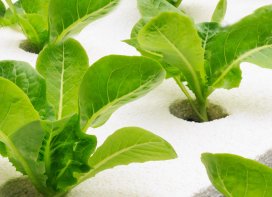
Aquaponics - A Sustainable Choice for Gardening
If you are an AquaGrove grower, then you already know about the notable benefits of having an aquaponic garden versus a conventional garden. Aquaponics is often touted as a highly sustainable method of gardening and farming due to several key reasons:
- Water Efficiency - Aquaponics recirculates water within the system, significantly reducing water usage (up to 90% less) compared to traditional soil-based agriculture. The water in the system is only replaced when it evaporates or is absorbed by the plants, making it the ideal choice for conserving water or growing where fresh water is scarce.
- Resource Conservation – Aquaponics uses a closed-loop system where the waste produced by fish is broken down by bacteria into nutrients that are then absorbed by plants. This efficient use of resources minimizes waste and maximizes growth and productivity.
- Reduced Environmental Impact – Aquaponic systems typically require less land compared to traditional farming methods, reducing deforestation and habitat destruction. Additionally, they produce fewer greenhouse gas emissions and minimize nutrient runoff which is known to pollute waterways. With AquaGrove’s added solar power option, growers can reduce their impact even more.
- Crop Diversity – At AquaGrove, we have seen it first-hand… Students making the choice to create diverse gardens that feature a wide variety of greenery. Aquaponics allows for the cultivation of multiple crops, including leafy greens, herbs, vegetables, and fruit. This diversity has the potential to contribute to food security and nutritional diversity.
- Year-Round Production – AquaGrove growers in colder regions have benefited from the ability to grow healthy greens throughout the year. Aquaponic systems can be operated indoors or outdoors, allowing for year-round production regardless of weather conditions. The ability to grow in a variety of climates and seasons can help mitigate seasonal variations in food supply.
- Higher Yields - When properly managed, aquaponic systems have the potential to produce higher yields compared to traditional farming methods in the same area. Higher yields are mostly due to plants having constant access to water and nutrients, leading to faster growth rates and increased productivity.
- Reduced Chemicals - Since aquaponics relies on natural processes to cycle nutrients, there is often no need for synthetic fertilizers or pesticides, reducing chemical inputs and potential harm to the environment and human health. A healthy system relies on both healthy fish and plants, and fish would simply not survive the use of harsh chemicals or pesticides.
- Educational Opportunities – As demonstrated through AquaGrove’s Learn + Grow System, aquaponics offers valuable educational opportunities for students and communities to learn about sustainable agriculture, ecology, and food production. The hands-on learning opportunities are multi-level and enable students to take control of their food source and gain an understanding of how to reduce their carbon footprint in food production.
While aquaponics offers numerous benefits for sustainable gardening and farming, it is important to note that successful implementation requires planning, monitoring, and management to ensure the system functions effectively and efficiently. To learn more about aquaponics and how to start your own AquaGrove garden, contact AquaGrove.
